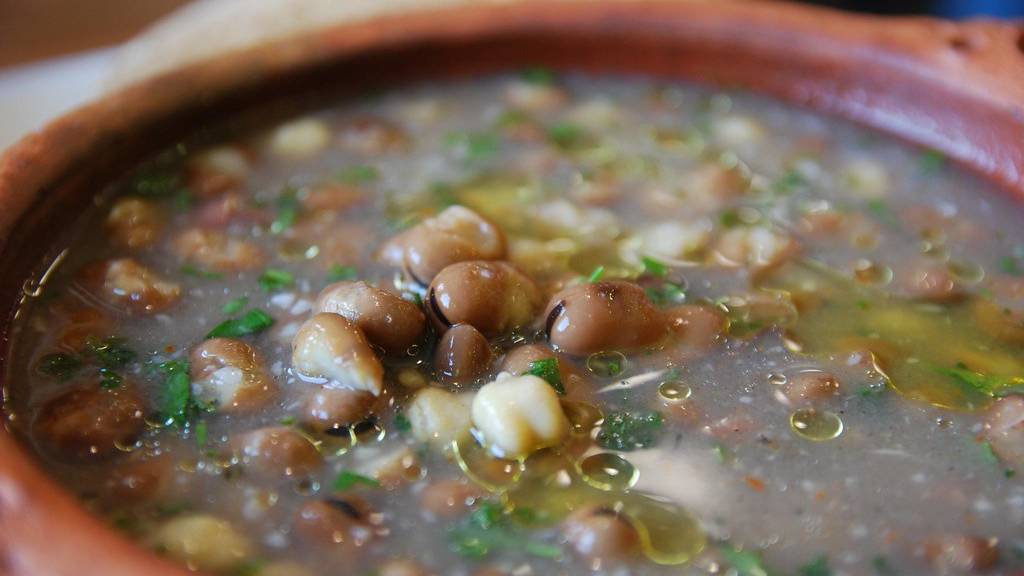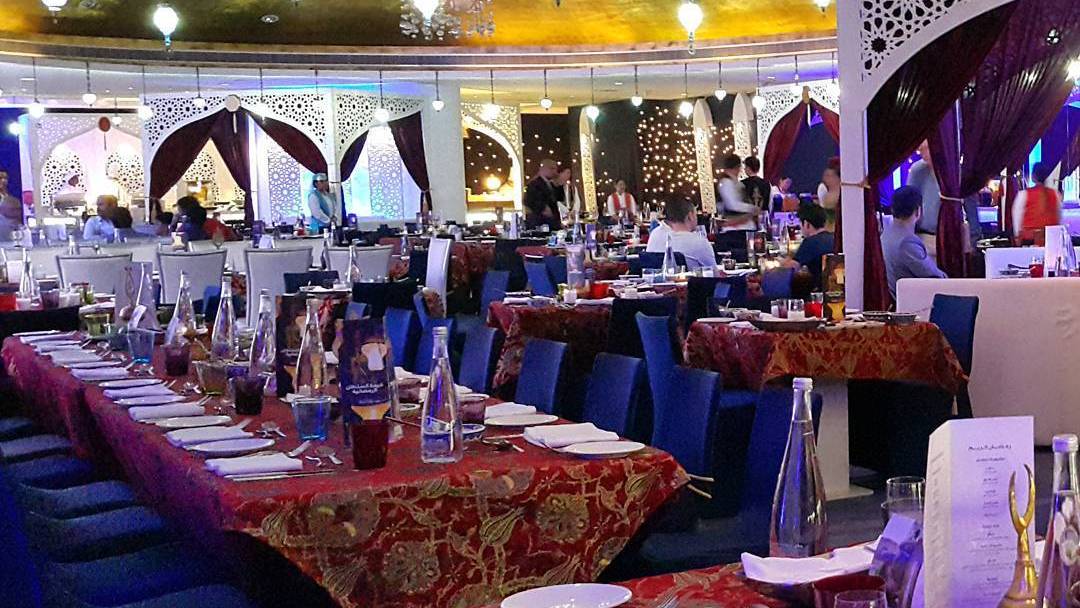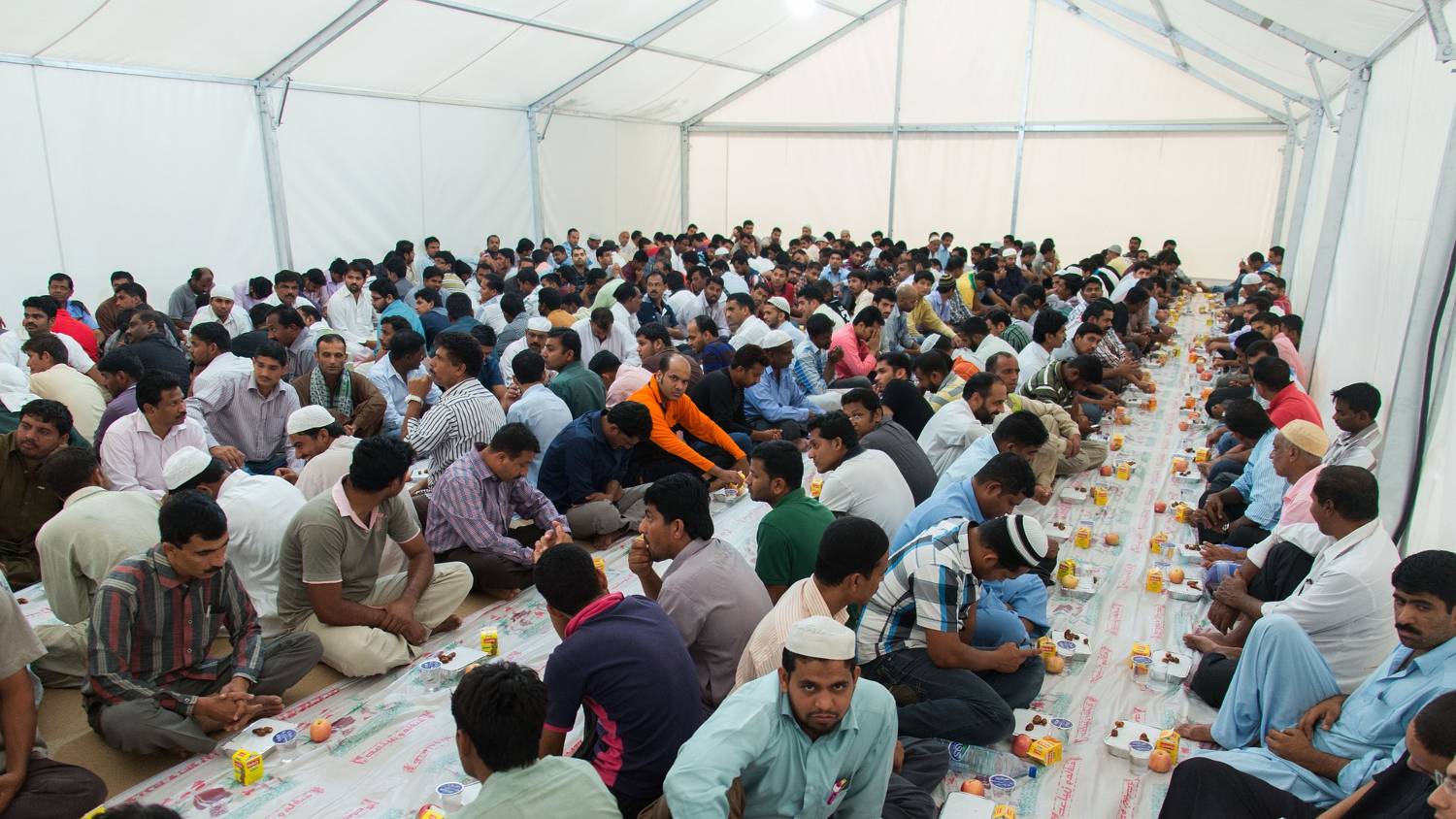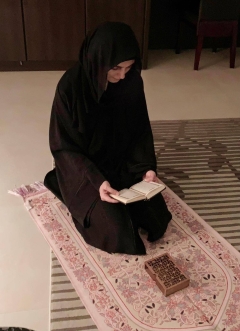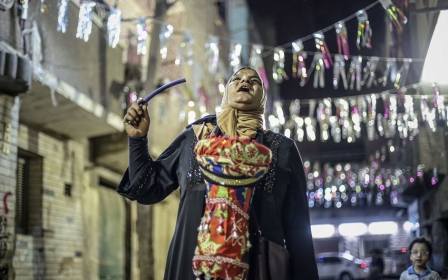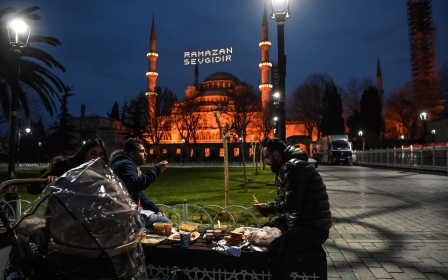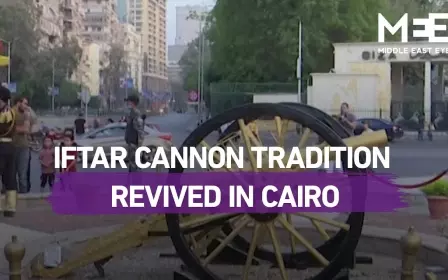Ramadan: A closer look at suhoor, the pre-dawn meal
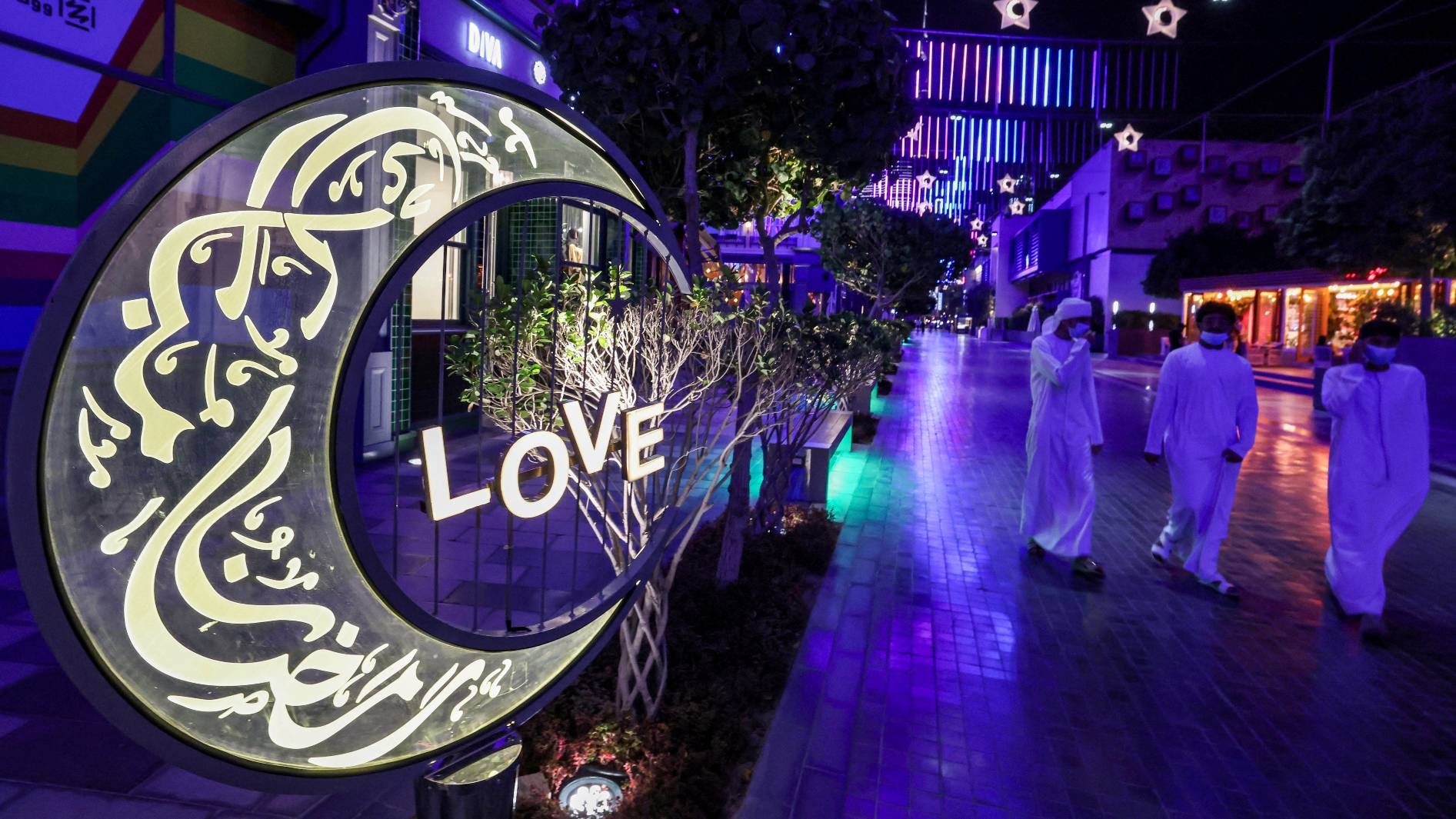
It's 11pm and Sahar Eldewieh and her friends gather to meet in the lobby of a Dubai hotel decorated with tasteful Ramadan lanterns. Dressed in their finest abayas and after a day spent fasting and dedicated to prayers, this is a chance for them to catch up and socialise in Ramadan ambience.
The suhoor tent where the friends meet has become a fixture of Gulf culture during Ramadan and also exists in some form in other Middle Eastern and Muslim states.
Muslims fasting in Ramadan, usually start their day just before sunrise, eating their last meal and performing their dawn prayers, known as fajr. The meal eaten at this time is known as suhoor and comes from the Arabic word seher, meaning the last third of the night. Variations of the word are used by other non-Arab Muslims.
Ostensibly a meal to load up on nutrients in the run-up to the next day's fast, suhoor is also a social event in many countries.
The Prophet Muhammad encouraged those fasting to wake up for this meal, and he is reported to have said: “Eat suhoor; surely there is much blessing in suhoor.”
Some wake up and gulp down a few sips of water before sunrise to rehydrate before abstention begins, others may have a bowl of porridge or fruit.
The idea is to eat foods at this time that support the day's fast by hydrating and energising the body. Foods that are salty can lead to thirst later in the day, and heavy greasy meals may cause heartburn or sluggishness.
Slow-cooked beans and bread
Mai Morsi, remembers the suhoor of her childhood in Egypt where her and her siblings would be woken by their parents and welcomed to the kitchen table just before dawn.
“There would always be fresh Egyptian bread, foul (slow-cooked fava beans), yoghurt, and other food, depending on what they had prepared that day.”
Morsi, now 38 and living in Bahrain, says she has never been a big suhoor eater. “But I would enjoy sitting with my family at this time and sometimes I’d even take a few bites of foul with bread, or just eat the yoghurt.”
Sahar Eldewieh’s mother, Fatima Alassam, grew up in Sudan in the 60s and recalls staying up late at night during Ramadan. “Sometimes we’d rest and just before fajr, mama would wake us up as a family for suhoor. We’d have red tea in a flask and a light meal, sometimes it would be rugag, which is like a light wheat-based cereal, similar to cornflakes.”
The next meal won’t be eaten until the sun starts to set hours later. This meal is known as iftar, from the Arabic word futoor, which means breakfast, the breaking of the fast.
As with suhoor, iftar meals depend heavily on family traditions.
Some follow the prophetic custom and keep it simple with dates and water, others enjoy Ramadan traditional drinks like qamardeen (apricot juice) and jallab (the juice of stewed dried fruits) to re-energise.
After offering the sunset prayer known as maghrib, families usually gather around the table to enjoy a meal that often includes staples such as soup, samosa, salad and a main dish, which could be anything from rice cooked with meat to a vegetarian lasagne, depending on personal favourites.
The suhoor social
As Muslims in the west fast long hours, and the window for eating and drinking is fairly short, many will reserve socialising and attending events to the weekend.
“It's the same in the Gulf to be honest, most people are not attending suhoor events every evening, for me it's a weekend thing,” explains Eldewieh, who is from the UK but has been living in the UAE since 2012.
“Women dress in beautifully embroidered abayas, kimonos, and other modest attire. People gather to meet friends and family, to eat, socialise, play cards or smoke shisha. But during the week it's cornflakes and tea for me.”
In 2018, a MAC make-up campaign promoted a "suhoor look", which caused some confusion with Muslims - mainly outside of the Middle East - mocking the need to get glammed up to eat in the early hours of the morning.
MAC was appealing to Muslims living predominantly in Gulf countries, who attend suhoor social events to make the most out of the short period people can eat, often hosted in luxury hotels and restaurants. However, the make-up company’s message was lost on the millions of Muslims living outside the region.
Tents for all
It’s not clear how the concept of Ramadan tents first started. Some suggest it was in Egypt where a group of friends wanted a place to meet and socialise after taraweeh (night) prayers, so they put up a tent in a communal space.
A local social club, which they were already members of, heard about the tent and decided to create their own - the concept soon spread.
In the UAE, it’s said some sheikhs would gather their large extended families in tents along Jumeirah Beach, for iftars and suhoors.
The hospitality industry caught on and were soon recreating their own Ramadan tents in restaurants and hotel ballrooms. Charging anything from $50 upwards, the concept of a Ramadan tent has proved lucrative ever since.
Hotels lay on endless spreads of international and traditional foods in Instagram-worthy surroundings. Main courses can range from qidreh (a Palestinian rice and meat dish rich in garlic and chickpeas) to murg makhni (thick Indian butter chicken) to a roast leg of lamb with gravy and all the trimmings and even sushi.
However, many are also cautious that the excessive consumption of food can lead to gluttony and waste, both counterproductive to the spirit of Ramadan.
A contrast to the offerings of the luxury hotels are the Ramadan tents set up offering free meals to the community, propagating one of the main tenets of Islam and indeed Ramadan - to help the less fortunate.
Male-only migrant workers often frequent these tents, as well as those who are cannot afford a meal. The tents are usually funded by charitable organisations or local people in the community.
Their meals are simple and typically include a handful of dates, a plate of rice with either meat or chicken, and a juice.
Balancing act
Eldewieh says: “During Ramadan long day of fasting, taraweeh prayers and self-reflection, iftar and suhoor are the two times you gather to celebrate with friends and family and I usually spend it at home. For me, a suhoor outing is occasional, on weekends, it’s all about balance.
“They’re not like the huge buffets served at iftar,” Eldewieh assures, “from the ones I’ve been to in Dubai, they are usually a paired down a la carte menu, possibly to save on food waste, but also because people are likely to only have appetite for one meal, and not graze all night.”
She is looking forward to the return of the Ramadan tents, which were closed during the pandemic. They will re-open this year with several Covid regulations in place, including avoiding handshakes, maintaining social distancing, and using hand sanitisers.
Morsi, a mother of three, didn’t feel the absence of the tents during the pandemic. Although she has lived in several Gulf countries over the last 15 years, she has always had an aversion to attending a suhoor event.
She says one of the reasons is because of social anxiety: “I don’t enjoy being in a big group of people, it usually causes me anxiety and discomfort, so that’s one reason I’ve never attended a tent, nor do I attend anything where there will be too many people around talking.”
Instead Morsi, who is also training to be a health psychologist, chooses to maximise on the sacred spiritual time in Ramadan where she says every minute counts. “I believe we should only worship Allah in it and leave all the joys of life, or keep it to minimal.”
She deactivates her social media, and chooses not to watch television nor partake in the social side of the month: “We have 11 other months where we can do social gatherings and outings. They are distractions; this is the month of spiritual reflection and prayer.”
After breaking her fast with dates and water with her family, and praying maghrib prayers at sunset, they gather to eat soup, salad and samosa with a light meal of whatever has been cooked, like roast chicken or lamb with rice.
Morsi will eat again after her taraweeh prayers: “It’s either yoghurt with sliced bananas or kunafa with cream and a cup of tea with milk, sometimes I have the soup and salad again. Just before fajr I'll have a few sips of water , this is my suhoor.”
This article is available in French on Middle East Eye French edition.
Middle East Eye propose une couverture et une analyse indépendantes et incomparables du Moyen-Orient, de l’Afrique du Nord et d’autres régions du monde. Pour en savoir plus sur la reprise de ce contenu et les frais qui s’appliquent, veuillez remplir ce formulaire [en anglais]. Pour en savoir plus sur MEE, cliquez ici [en anglais].


